Honduras
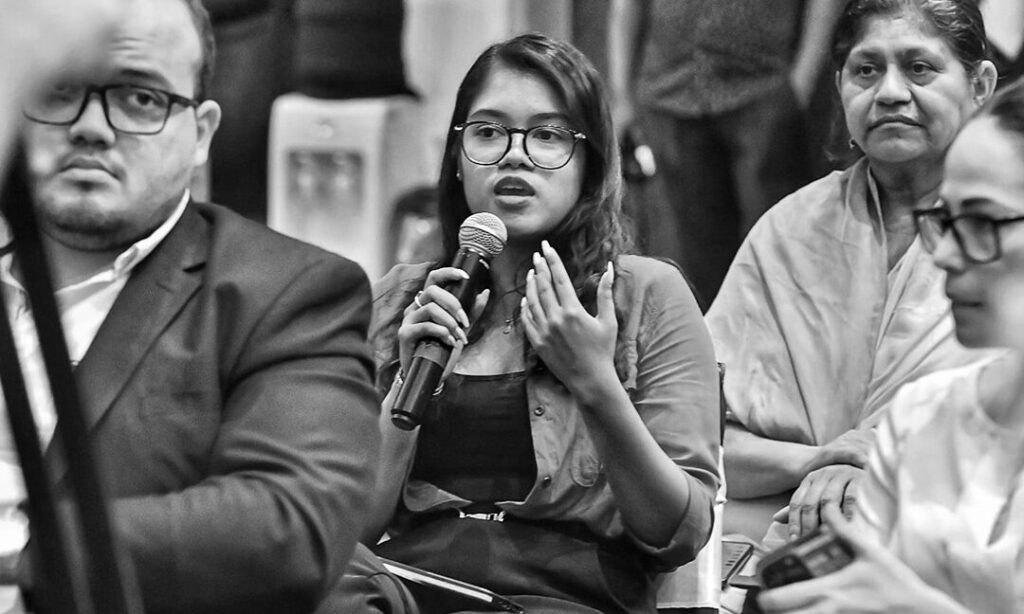
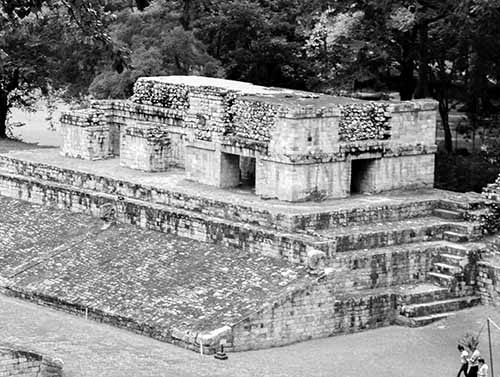
- Objective and Results
- Political Background
- Qué hacemos
- Cómo lo hacemos
- Conozca al equipo
Objetivo principal
Building trust and countering polarization by ensuring all voices are heard in Honduran democracy.
Resultados
Following irregularities and violence in the 2017 elections, we worked with Honduras’s electoral bodies to pave the way towards electoral reforms and restore trust in the electoral process. By 2021, Honduras’s new and strengthened institutions oversaw peaceful elections with high voter turnout, helping to ensure that all people had the chance to be represented in a more inclusive and credible electoral process.
Through our regular Democracy Schools, we have been investing in the new generation of political leaders for over 10 years. Today, a whole network of young people, from different backgrounds and political ideologies, is equipped and willing to work together to invest in inclusive democracy.
As part of our work to ensure that every voice is heard, we launched Honduras nos Convoca, an online platform designed to amplify the voices and policies of candidates from structurally excluded groups ahead of the 2021 elections – including many of our own Democracy School alumni.
Honduras: Political Background
With a long history of military dictatorships and conflict, Honduras now faces significant challenges in building and sustaining a strong and inclusive democracy – an endeavour that takes time, investment and effort.
The country’s most recent coup d’etat in 2009, in particular, deeply polarized Honduran society, leaving a lasting legacy of political tension and division between the left and right.
While still grappling with these challenges, Honduras has also made significant strides towards inclusive democracy. The country now regularly holds elections and has seen peaceful transfers of power, including the 2021 election of Xiomara Castro, the country’s first woman President.
As Honduras come to terms with its past, it is now working to heal historical animosities between political groups; build trust in politics; and ensure all voices are heard. This long-term process will require transparency, accountability and responsiveness in politics.
Qué hacemos
NIMD has been active in Honduras since 2011, when the country was still reeling from the 2009 coup d’etat. Since then, we have been dedicated to countering polarization. We have worked to build trust across divides through dialogue; increase political participation and influence among structurally excluded groups; and ensure responsiveness and transparency among political and electoral institutions.
Today, we are committed to amplifying the voices of youth, women and people from structurally excluded groups, such as indigenous people. Trust in politics requires that everyone feels heard, and democracy can only truly function when all voices have the power to influence it.
We take up this commitment through our Democracy Schools, dialogue and training. Through all these activities, we recognize that individuals may have multiple identities and face different layers of marginalization. We work to ensure that their diverse experiences are fully represented and addressed.
Democracy can only truly function when all voices have the power to influence it.
What we do: In Numbers
Cómo lo hacemos
Educación para la democracia
Democracy Schools have always been at the heart of NIMD’s work in Honduras.
Through our regular Schools, we invest in the new generation of political leaders, imparting young people from politics and civil society with the skills, knowledge and democratic values they will need to influence their democracies.
Coming together across political divides over the course of five weeks, the participants learn about dialogue, electoral systems, political party systems, active communication, human rights, geopolitics and the political history of Honduras.
We hope that our participants will continue to influence democracy in Honduras with a new understanding of the need to work together in the interests of their citizens. In this way, our schools invest in youth political participation, while also laying the groundwork for respectful collaboration across party lines.
"The Democracy School has provided me with vital tools to not only continue my work to strengthen the Rule of Law, but also to reaffirm my commitment to change."
Abner Brito, Democracy School participant and human rights defender.
La juventud en la política
The 2009 coup and subsequent political crises have galvanized a generation of youth who are demanding reforms and better opportunities.
While determined to stand up against corruption, poverty and inequality, these young people often feel sidelined by the political system, which is still dominated by older elites and traditional power structures.
That’s why we focus on amplifying the voices of young politicians and civil society representatives, helping them strengthen their platforms and increase their influence.
In addition to preparing young leaders to enter and influence politics through our Democracy Schools, we organize intergenerational dialogues with established politicians. These dialogues provide valuable opportunities to connect with decision-makers, exchange ideas and expand networks, while also fostering trust and understanding to reduce generational stereotypes and polarization.
As part of our work to increase the influence of young leaders, NIMD also supports youth involvement in shaping public policies through dialogue and advocacy. This is an important step towards ensuring that the needs and perspectives of youth are integrated into the policies that affect them.
Lastly, we provide training, practical support and microgrants to civil society organizations committed to working on issues related to youth, diversity and gender, as well as those dedicated to amplifying the voices of traditionally marginalized groups.
"Our objective is to strengthen the power of young people to shape Honduran democracy."
Las mujeres en la política
Women in Honduras face numerous obstacles in achieving representation in governance, including violence, a lack of opportunities, a historically machista culture, and lack of finance. However, the political landscape is shifting, with the numbers of woman MPs, councilors, and local officials increasing.
NIMD Honduras works to help women realize their political potential though public information campaigns, training sessions, capacity building, practical support and strategic planning advice.
We are conducting a study, for example, to assess the performance of the party and electoral systems in facilitating women’s political participation. This study will focus on understanding the factors that influence the likelihood of women being elected to public office in 2025, providing critical insights into existing gaps and opportunities for improving gender equality in political representation. By producing evidence-based research, NIMD aims to foster informed discussions on strengthening gender inclusion in politics, both among the general public and within political bodies.
We also work directly to support political institutions – including political parties – as they strive to level the playing field for structurally excluded groups. Alongside training and dialogues, we use NIMD’s Herramienta "Hoja de ruta de género para partidos políticos inclusivos" (GRIPP), to encourage parties to undertake problem analysis and self-assessment. This leads to concrete strategies for increasing women’s participation at all levels of political decision-making.
Política responsable
NIMD Honduras has a long history of supporting the institutions responsible for electoral rules and procedures, helping them build their capacities to work more effectively towards genuine, credible and peaceful elections.
This work also builds trust in the electoral process among the general population. When people see elections running smoothly, they have faith that their vote matters – an important foundation for any democracy.
Today, our support reaches further than political and electoral institutions, also bringing together other key players who are vital for a thriving democracy. These include the media, unions and civil society.
We provide training and support as these political influencers carry out their important role in Honduran democracy. What’s more, we promote mutual learning and enhance connections, which will allow our participants to deepen democratic culture; strengthen institutions; promote inclusion; and ensure reliable and peaceful electoral processes.
Diálogo
For a long time, political party dialogue was at the heart of NIMD’s work in Honduras. We brought parties together to engage in respectful dialogue, reach consensus and agree on policies in the interests of the general population.
In recent years, however, our dialogue has widened to include other important groups in Honduran democracy. Our new multistakeholder dialogues go beyond the people directly involved in the political process. These dialogues gather diverse groups in society who have a stake in the political process. These can include Members of Parliament, civil society, advocacy groups, protest movements and businesses.
Our work in action
Enriching dialogue through data
As part of our efforts to facilitate dialogue within Honduras, NIMD also works to provide participants with relevant and up-to-date insights.
For us, it is crucial to contribute to informed and evidence-based dialogues, ensuring that participants gain a better understanding of their democracy.
For example, we conducted a survey on transparency and the fight against corruption. By presenting the survey results to representatives from the government, political sector, civil society, private enterprise and youth movements, NIMD provided non-biased and relevant input for ongoing dialogue on the establishment of an International Commission against Corruption and Impunity in Honduras. Such a commission would represent a significant step towards addressing corruption in the country, ultimately strengthening trust in democracy and increasing responsiveness and accountability within the political system.
Supporting the media to uphold its democratic role
NIMD Honduras organized a seminar for journalists on their role to uphold and enhance democracy, with the support of the Honduran Journalists’ Association and the National Electoral Council.
A total of 28 journalists from radio, print, television and digital platforms participated, marking the beginning of a strategic alliance, through the media they represent and the Honduran Journalists’ Association.
With the next general elections in Honduras expected in 2025, this dialogue and learning space provided journalists with the information they need to fully take up their role in informing, guiding and generating public opinion – key actions for strengthening democracy.
Conozca al equipo
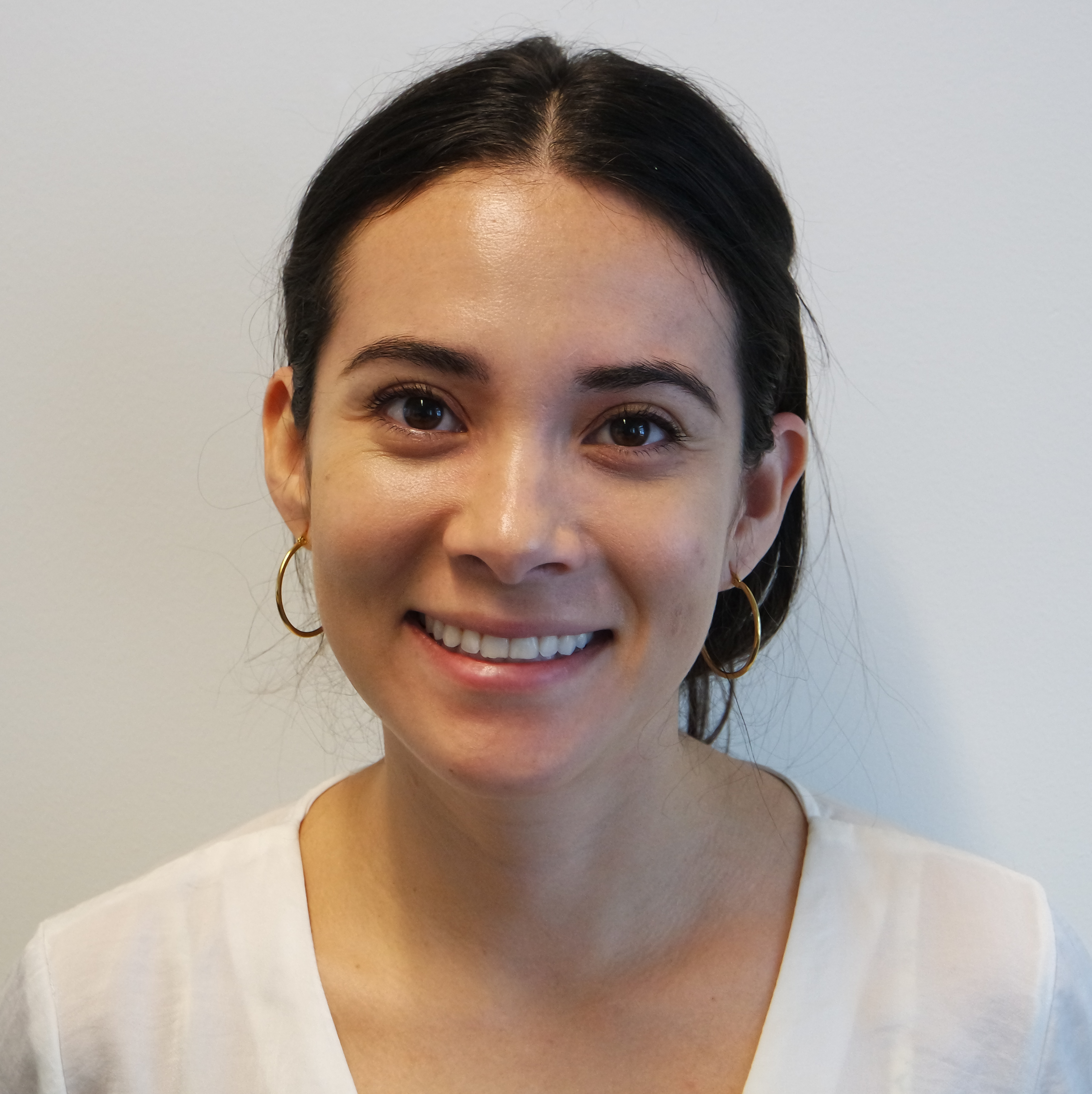 Daniela Montero
Asesor de programas y conocimientos
Seguir leyendo
Daniela Montero
Asesor de programas y conocimientos
Seguir leyendo
Daniela Montero is the focal point in The Hague working with the Honduras team.

Daniela Montero is the focal point in The Hague working with the Honduras team.
Con quién trabajamos
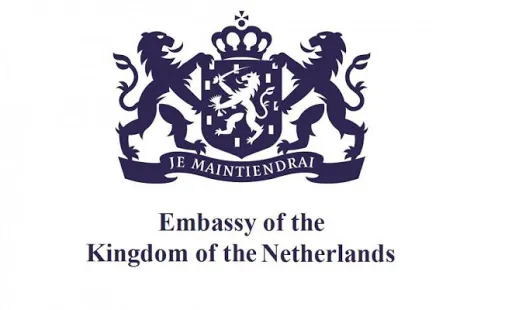
Part of our work to strengthen youth political participation and leadership is funded by the Embassy of the Kingdom of the Netherlands in Costa Rica, which is also responsible for managing diplomatic relations with Honduras.

The National Endowment for Democracy funds part of NIMD’s work with young leaders from political parties and civil society in Honduras. This includes our Democracy Schools, intergenerational dialogues and policy development.
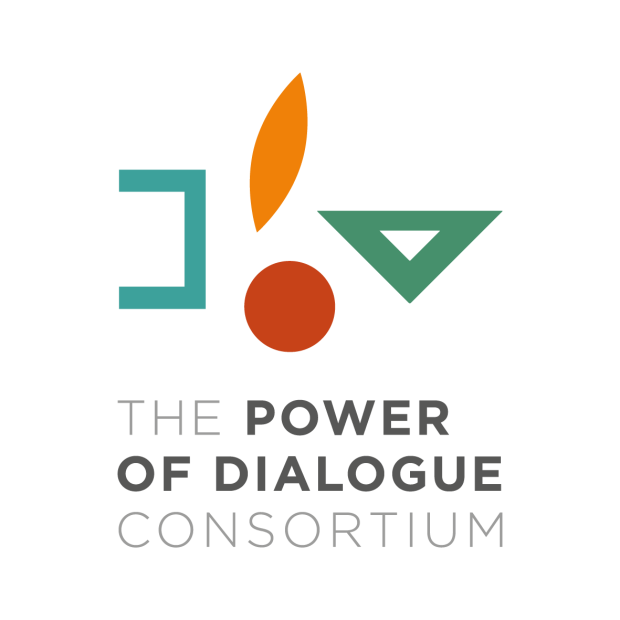
NIMD’s Honduras works alongside NIMD El Salvador and NIMD Guatemala, with funds from the Dutch Ministry of Foreign Affairs under the El poder del diálogo programa. El consorcio Power of Dialogue está formado por NIMD, Instituto Gorée, Akina Mama wa Africay Centro de Estudios Mediterráneos Internacionales (CEMI), and seeks to enhance collaboration of political and civic actors to participate in accountable political processes.

With funds from the Rockefeller Foundation, NIMD promotes inclusive democracy in Central America, with a focus on human rights, the rule of law, and democracy to enhance opportunities for inclusive development in Honduras, Guatemala, and El Salvador.
 Facebook
Facebook X
X